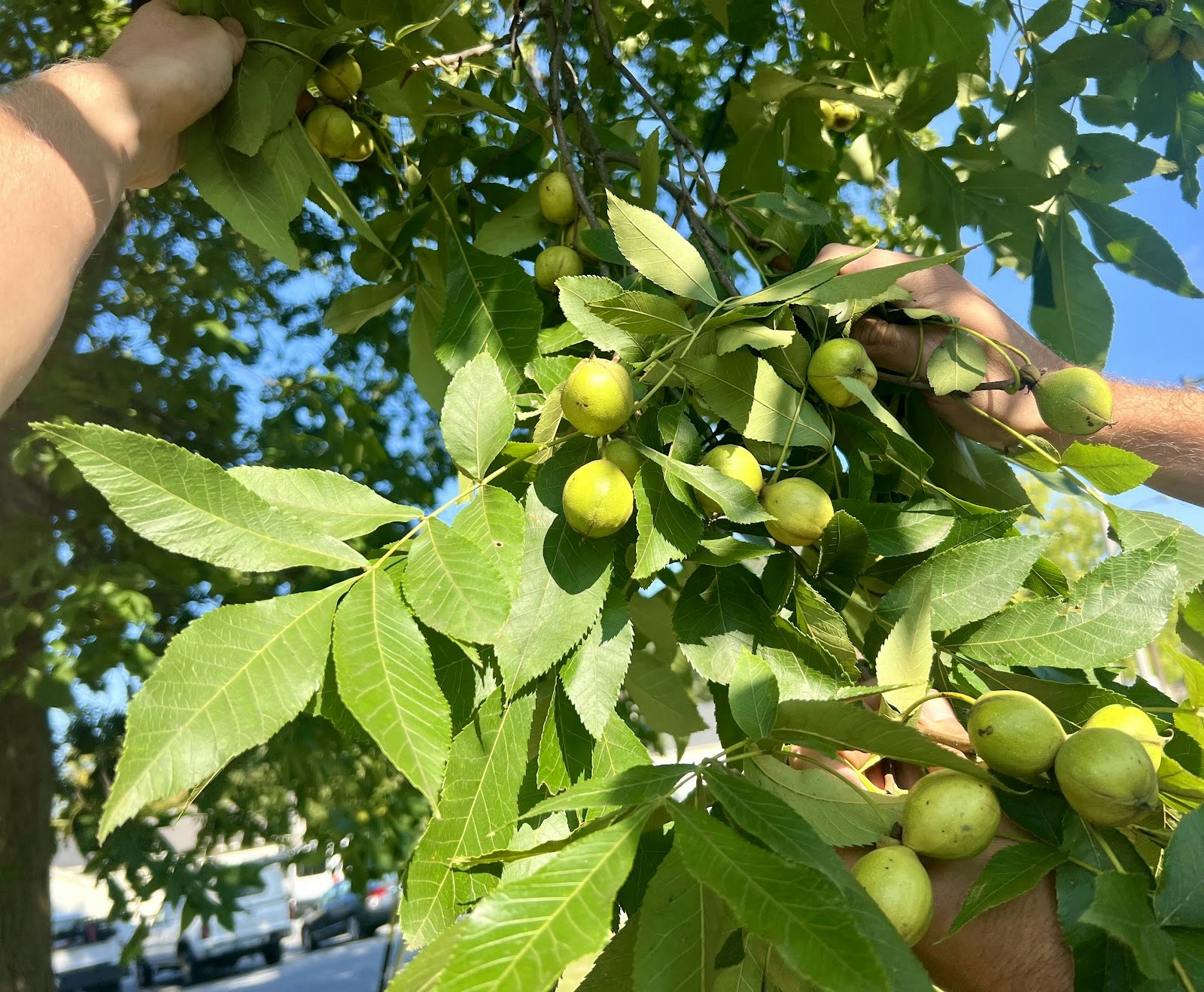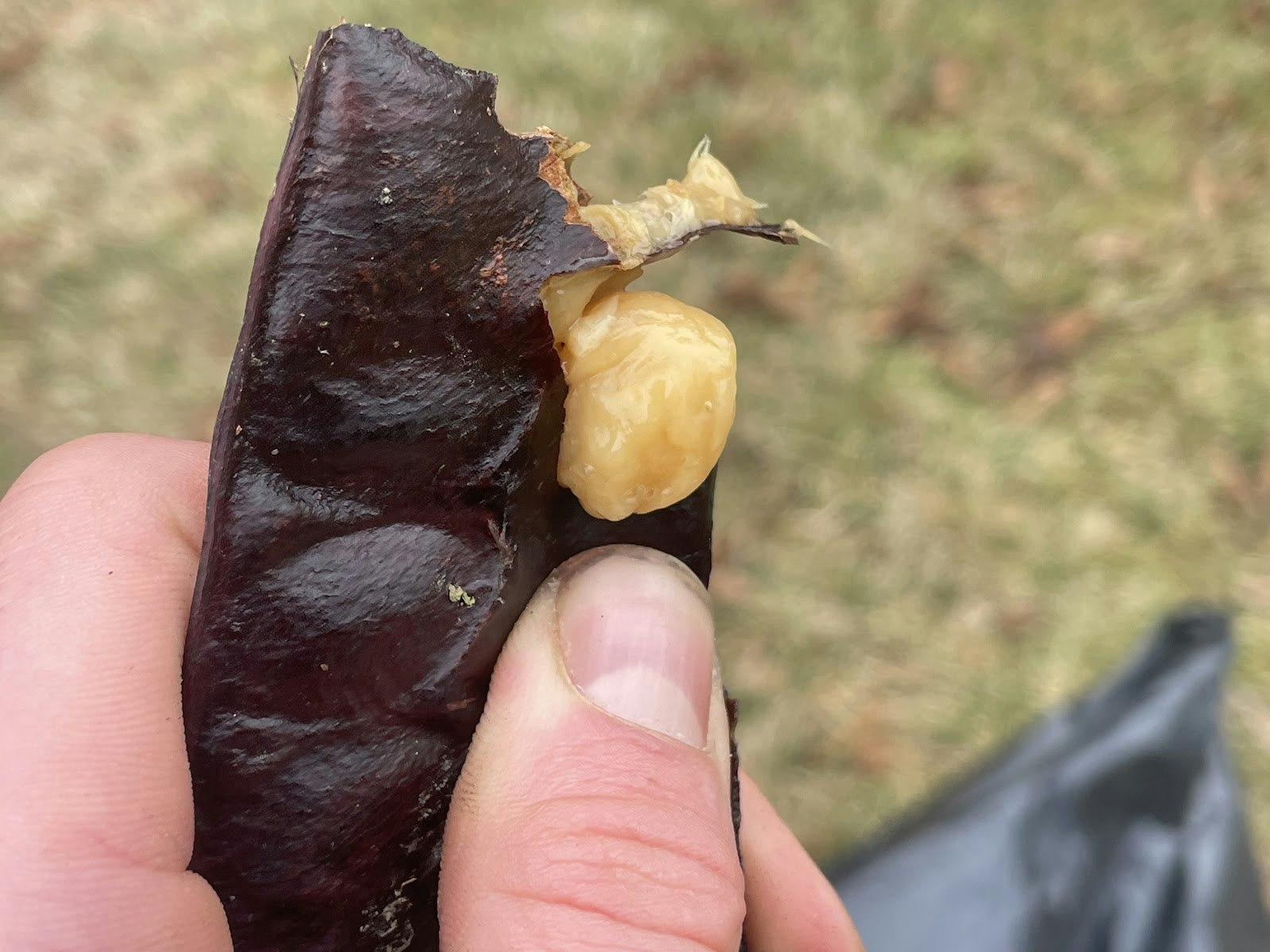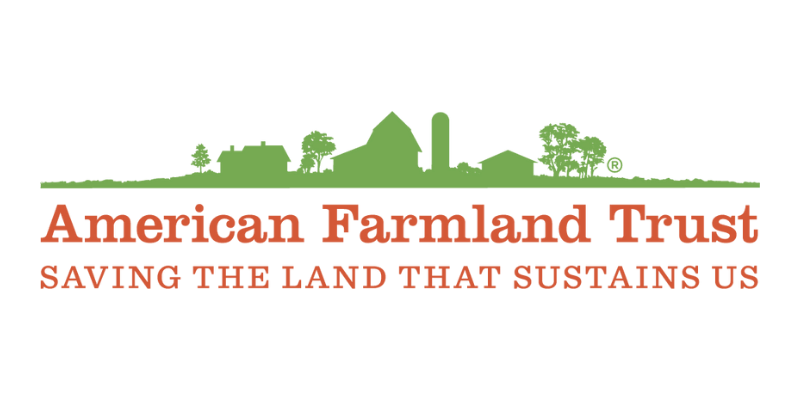Free Trees for Livestock Farms
Agroforestry for Pollinators and Food System Resilience
Plan now for Spring 2026!
The White River NRCD, in partnership with the Xerces Society for Invertebrate Conservation and American Farmland Trust, is entering its third season of the Free Trees for Livestock Farms initiative to integrate agroforestry, pollinator habitat, and perennial food systems into working farms across our District and neighboring regions in the Connecticut River Watershed. Eligible counties for the program include Essex, Caledonia, Orange, Windsor, Windham, and Bennington in Vermont, as well as Coos, Grafton, Sullivan, and Cheshire in New Hampshire.
This program supports livestock farms—especially those with limited access to existing conservation funding—with free trees, materials, planning and planting assistance, and opportunities to participate in peer learning and public education events. It aims to promote the ecological and economic benefits of perennial food systems, enhance pollinator habitat, and build capacity for long-term farm planning and stewardship.
What the Program Offers
- Spring 2026: Free Tree Bundles with expanded species offerings and bundle scenarios: Riparian bundles with two, three, or four row scenarios; hedgerow bundles with two, three, four, or five row scenarios; windbreak bundles with three, four, or five row scenarios; silvopature double row, single row, or block planting scenarios.
- Free Site-Specific Technical Assistance, including help developing simple agroforestry, grazing, or forest management plans tailored to each farm's needs.
- Free Materials, including tree protection (tubes, hardware cloth, mulch, mats), mycorrhizal inoculant, and optional watering aids (e.g., tree bags).
- Free Planting Support via educational and volunteer opportunities. Participate in training sessions or host work brigades, if desired, with support from Farm Force.
Program Goals
- Expand tree-based conservation practices on livestock farms in ways that enhance pollinator habitat, pasture health, and soil biodiversity.
- Provide access to trees and agroforestry materials for farms, especially those not currently receiving federal funding.
- Build long-term capacity for agroecological planning through farm-friendly tools such as bundled species packages and on-farm conservation planning support.
- Strengthen community-based conservation, youth engagement, and public education through integrated work brigades and learning events.
Eligible Farms will be prioritized based on:
- Readiness and capacity for long-term tree care.
- Need for pollinator or riparian habitat.
- Lack of access to other funding sources.
- Willingness to engage in education or host work brigades.
Next Steps for Farmers
Complete this short form to express interest in this program. A planner will reach out to schedule a time to meet and assist you in planning your agroforestry project.
Note: If you've already filled out this information, please reach out to us directly at jaiel.nrcd@gmail.com to schedule a meeting about your Spring 2026 planting project.
BUNDLE DESCRIPTIONS
Silvopasture Species:
- Yellowbud Hickory (Carya cordiformis)
- Shagbark Hickory (Cayra ovata)
- Chestnut (Castanea dentata x spp.)
- Honey Locust (Gleditsia triacanthos)
- Tulip Poplar (Liriodendron tulipifera)
- White Mulberry (Morus alba). (Limited supply).
- Cottonwood (Populus deltoides)
- Quaking Aspen (Populus tremuloides)
- White Oak (Quercus alba)
- American Basswood (Tilia americana)
Riparian Buffer Scenario:
- Two Row - 31 stems - Highbush Blueberry, Pussy Willow, Buttonbush**, Nannyberry, Silky Dogwood, Allegheny Serviceberry.
- Three Row - 55 stems - Black Chokeberry*, Common Elderberry*, Steeplebush, Highbush Blueberry, Pussy Willow, Buttonbush**, Nannyberry, Silky Dogwood, Allegheny Serviceberry.
- Four Row - 60 stems - Black Chokeberry*, Common Elderberry*, Steeplebush, Highbush Blueberry, Pussy Willow, Buttonbush**, Nannyberry, Silky Dogwood, Allegheny Serviceberry, White Oak*, Yellowbud Hickory, Black Cherry**.
Hedgerow Scenario:
- Two Row - 27 stems - Chokecherry**, American Hazelnut, Gray Dogwood, Canadian Serviceberry, Black Chokeberry*, Arrowwood Viburnum.
- Three Row - 32 stems - Chokecherry**, American Hazelnut, Gray Dogwood, Yellowbud Hickory, Red Maple*, Bur Oak*, Canadian Serviceberry, Black Chokeberry*, Arrowwood Viburnum.
- Four Row -127 stems - Prairie Willow, New Jersey Tea, Lowbush Blueberry, Chokecherry**, American Hazelnut, Gray Dogwood, Canadian Serviceberry, Black Chokeberry*, Arrowwood Viburnum.
- Five Row - 132 stems - Prairie Willow, New Jersey Tea, Lowbush Blueberry, Chokecherry**, American Hazelnut, Gray Dogwood, Yellowbud Hickory, Red Maple*, Bur Oak*, Canadian Serviceberry, Black Chokeberry*, Arrowwood Viburnum.
Windbreak Scenario:
- Three Row - 66 stems - Prairie Willow, New Jersey Tea, Lowbush Blueberry, Canadian Serviceberry, Chokecherry**, Gray Dogwood, Yellowbud Hickory, Red Maple*, Bur Oak*.
- Four Row - 83 stems - Prairie Willow, New Jersey Tea, Lowbush Blueberry, Black Chokeberry*, American Hazelnut, Arrowwood Viburnum, Canadian Serviceberry, Chokecherry**, Gray Dogwood, Yellowbud Hickory, Red Maple*, Bur Oak*.
- Five Row - 88 stems - Prairie Willow, New Jersey Tea, Lowbush Blueberry, American Hazelnut, Black Chokeberry*, Arrowwood Viburnum, Chokecherry**, Canadian Serviceberry, Gray Dogwood, American Basswood, Yellowbud Hickory, Red Maple*, Tulip Poplar, Cottonwood, Bur Oak*.
Bundle diagrams and layout examples.














